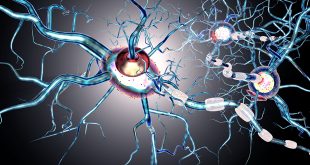Diabetes can damage the nerves throughout your body leading to a condition called diabetic neuropathy. Left untreated, diabetic neuropathy can be painful, and can also pave the way to some serious health complications.
Read More »Managing complications
Living with diabetes and heart disease: a message of hope
For people living with type 2 diabetes, the routines are pretty well-known – eat healthy foods, exercise regularly and take medication as prescribed. But what many people might not know is that, despite their best efforts, complications of diabetes may occur. One of the primary complications of diabetes is heart disease, which can actually be present when diabetes is diagnosed or happen any time thereafter.
Read More »Risk factors and warning signs for diabetes-related eye damage
There is a strong link between diabetes and eye damage (also known as diabetic retinopathy). That’s why it’s important for people with diabetes
Read More »Tips to manage high blood pressure
Many people with type 2 diabetes have high blood pressure also called hypertension. We give you the facts about what it is and why it matters, together with tips to manage high blood pressure. All the information you need is right here!
Read More »Tired all the time? Here’s why
Sure we all experience fatigue from time to time, especially after exerting ourselves too much. But if you’re constantly mentally or physically tired, your diabetes may have something to do with it.
Read More »Managing diabetes when you are sick
Common illnesses such as dehydration or flu can be more challenging if you live with diabetes. Read this expert blog to learn about managing diabetes when you are sick.
Read More »Type 2 diabetes and cardiovascular disease prevention
Diabetes Care Community spoke with Dr. Vincent Woo, an endocrinologist based in Winnipeg, and Dr. Nicholas Giacomantonio, a cardiologist based in Halifax. They talked about the important link between type 2 diabetes and cardiovascular disease, and how new therapies can help people at high risk prevent heart attack and stroke.
Read More » Diabetes Care Community Learn, connect and care
Diabetes Care Community Learn, connect and care






